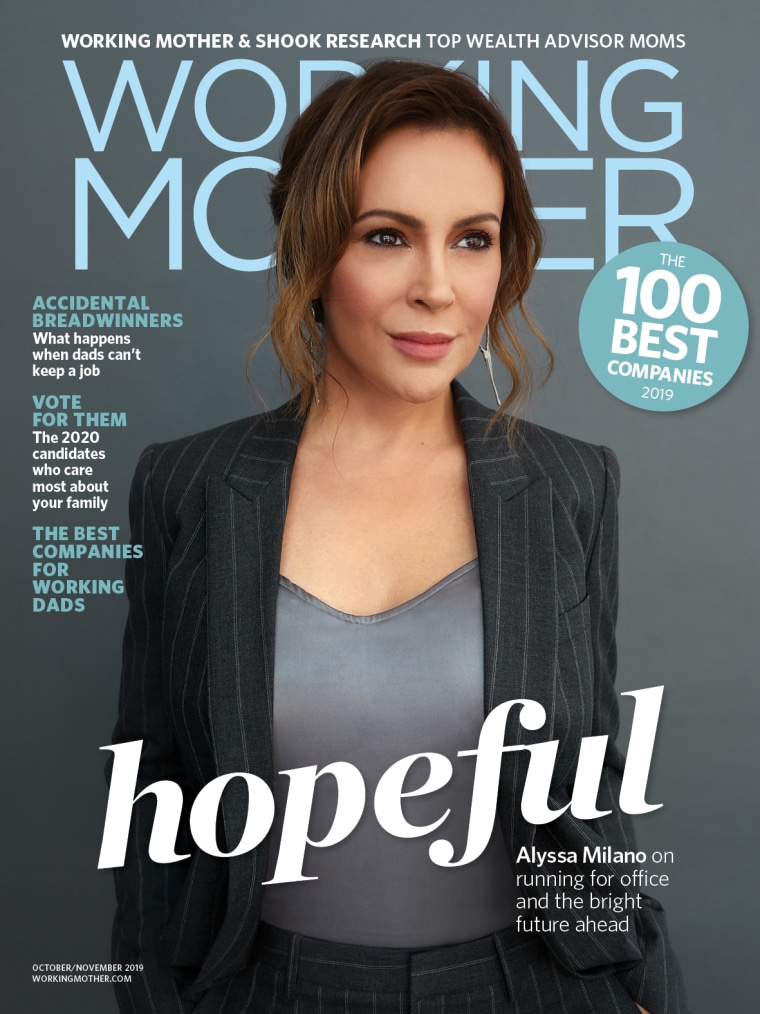From gender-neutral leave to emergency childcare, Working Mother magazine’s 100 Best Companies are setting the gold standard for parents in the workplace. Pharmaceutical giants AbbVie, Astellas Pharma U.S., Johnson & Johnson and Takeda ranked among the top-10 companies this year, along with four powerhouses from the business services industry, including Bain & Company, Deloitte, Ernst & Young, and KPMG. Tech company IBM and consumer products company Unilever rounded out the top ten.
“These companies do everything it takes to put employees first,” Subha Barry, president of Working Mother Media, told Know Your Value. Barry said the leading companies are allowing employees to work in ways that they see fit, including phase-back and reduced hour programs for moms returning to work after childbirth, plus flextime and telecommuting.
For example, Johnson & Johnson offers on-site childcare and goes beyond basic health and wellness benefits to include stress alleviation and sleep hygiene. IBM reimburses up to $50,000 per year for a child with mental, physical or developmental special needs, and has been doing so for more than 30 years. Both companies have been on Working Mother’s list every year since it was created in 1985.

The 100 Best Companies list is determined by responses to a 400-question survey, which is filled out by companies’ Human Resources representatives with input from employees. While the magazine presents the list in alphabetical order, it includes shout-outs for the top 10 companies and the Hall of Fame, which is for companies with at least 15 years on the list, and the Quarter-Century Club for the 25-year mainstays.
The 2019 Working Mother report found that of the top 100 companies:
- 81 percent let employees phase back into work gradually after parental leave for an average of 13 weeks
- 57 percent give all parents equal leave, regardless of gender
- 41 percent have a program to rehire moms who have been out of the workforce for at least three years
The top 100 companies offered an average of 11 weeks fully paid maternity leave — that’s four weeks longer than it was five years ago, and nearly three times as much as the national average.
In addition, nearly every company offers flextime and telecommuting, with a majority of women employees using those benefits. More than 90 percent offer programs to help employees’ children on the autism spectrum, and more than 70 percent have programs to assist employees’ children with cancer. In addition, 94 percent have backup or emergency childcare and 75 percent have sick-child care. Around a third of these companies’ women employees take part in leadership development programs; the same is true of one-on-one formal mentoring.
As part of the survey, Human Resources representatives dished on their favorite employee benefits, like reimbursement for prenatal classes, surrogacy, and egg freezing; the ability to buy extra vacation days at a discounted rate; and a four-day compressed workweek. Johnson & Johnson’s chief human resources officer called out the company’s discounts at a network of childcare centers and backup dependent care, and its on-site childcare centers that serve an average of nearly 600 children per month.
Julie Vogtman, director of job quality and senior counsel for the National Women’s Law Center, told Know Your Value that “more and more employers are recognizing what an outlier the United States is” as the only developed country in the world that doesn’t mandate paid maternity leave. “If an employer not only recognizes what a struggle it is to find high quality child care that you can actually afford, but also provides some kind of help with finding and paying for that child care, then that’s really amazing,” said Vogtman, who was not affiliated with the study.
At the Ms. Foundation, a Brooklyn-based nonprofit that supports women and girls at the grassroots level, the company policy allows mothers to bring their new babies into work up to six months after their birth. “Many of the women in my team said that was like a pivotal point for them, because they were ready to return to work but not leave their children,” President and CEO Teresa Younger told Know Your Value. She noted that having that flexibility made her colleagues more committed to the organization.
Barry commended the 57 percent of companies on her magazine’s list that offer the same amount of parental leave regardless of gender. (American Express, Dow Jones & Company, The Estee Lauder Companies, and UBS offer a minimum of 20 weeks.) When she was working as a commodities trader and pregnant with her first child three decades ago, her company did not have its own maternity leave policy. She took only two and a half weeks of sick leave after a natural childbirth. “I wasn’t even walking straight,” she said.
“Unless the government steps up to do something about fully paid maternity leave, the companies are always going to be leading and the best companies are always going to be doing much more,” Barry said.
